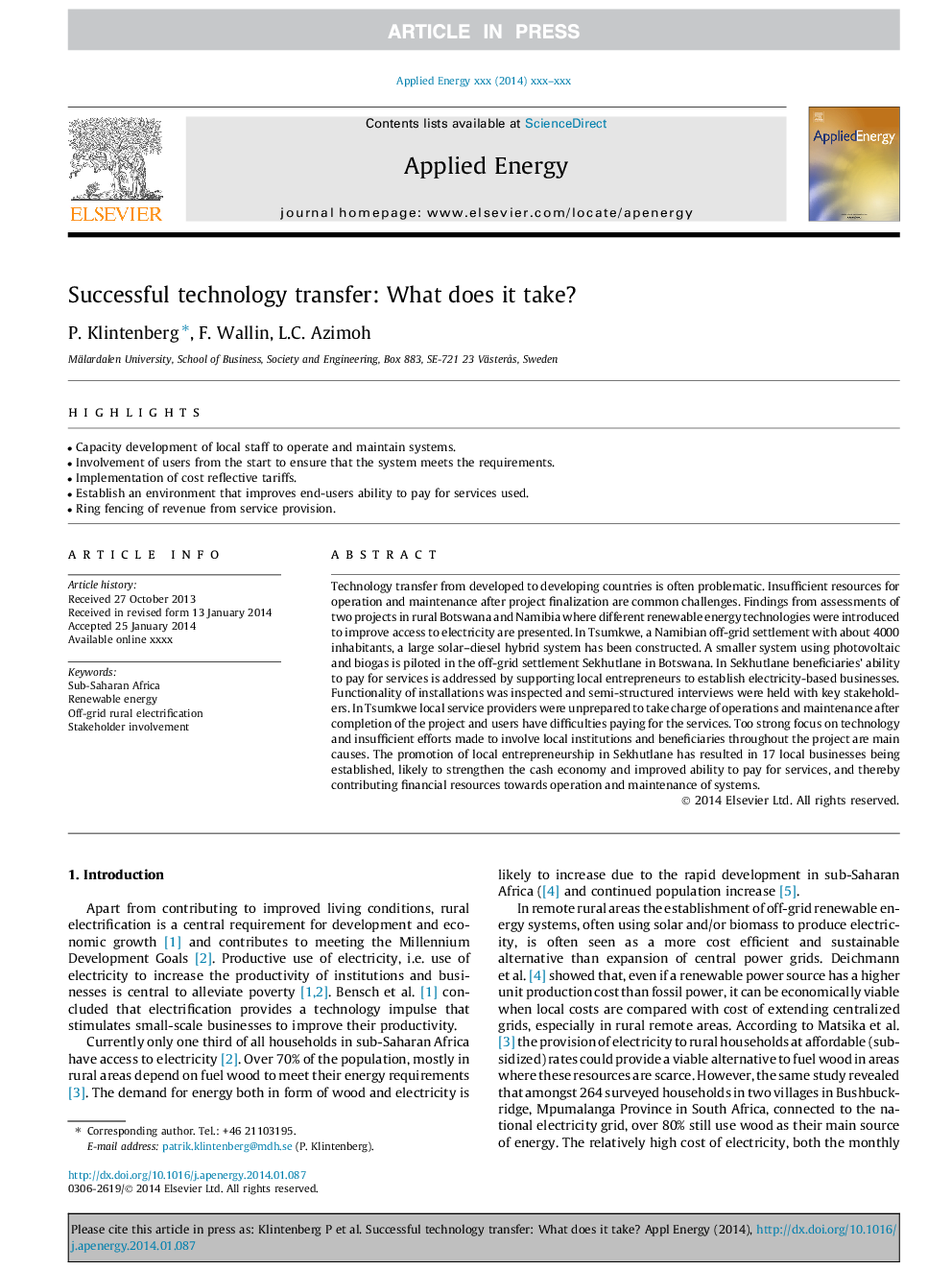| Article ID | Journal | Published Year | Pages | File Type |
|---|---|---|---|---|
| 6690248 | Applied Energy | 2014 | 7 Pages |
Abstract
Technology transfer from developed to developing countries is often problematic. Insufficient resources for operation and maintenance after project finalization are common challenges. Findings from assessments of two projects in rural Botswana and Namibia where different renewable energy technologies were introduced to improve access to electricity are presented. In Tsumkwe, a Namibian off-grid settlement with about 4000 inhabitants, a large solar-diesel hybrid system has been constructed. A smaller system using photovoltaic and biogas is piloted in the off-grid settlement Sekhutlane in Botswana. In Sekhutlane beneficiaries' ability to pay for services is addressed by supporting local entrepreneurs to establish electricity-based businesses. Functionality of installations was inspected and semi-structured interviews were held with key stakeholders. In Tsumkwe local service providers were unprepared to take charge of operations and maintenance after completion of the project and users have difficulties paying for the services. Too strong focus on technology and insufficient efforts made to involve local institutions and beneficiaries throughout the project are main causes. The promotion of local entrepreneurship in Sekhutlane has resulted in 17 local businesses being established, likely to strengthen the cash economy and improved ability to pay for services, and thereby contributing financial resources towards operation and maintenance of systems.
Related Topics
Physical Sciences and Engineering
Energy
Energy Engineering and Power Technology
Authors
P. Klintenberg, F. Wallin, L.C. Azimoh,
